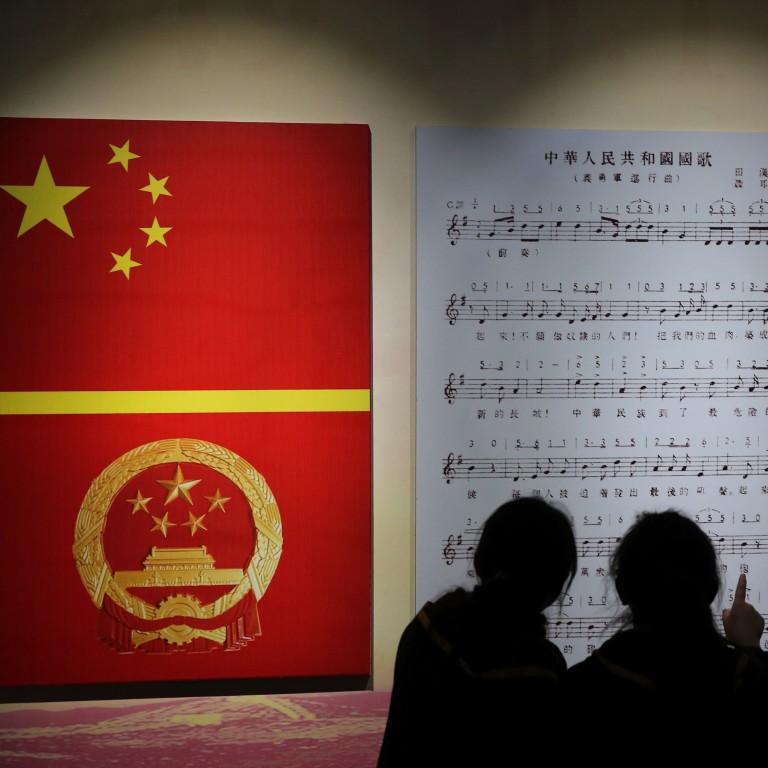
Explainer | Hong Kong’s national anthem law: when you can ignore the song, and when you have to stand
- If the song comes on the television at a restaurant, you can keep on eating
- But singing the tune in a mocking fashion at a big sporting event could land you three years in jail
While the government says most people will be unaffected by the law, critics argue its wording is vague and could have an effect on freedom of speech in Hong Kong. Here is an overview of what you need to know about the issue.
What is the national anthem law?
The law regulates how people should behave when March of the Volunteers is played. The song, with lyrics that rally a China at war with Japan, was introduced to the public in a 1935 film and was ratified as the national anthem in 2004. Under the law, a person who publicly and intentionally insults the anthem faces up to three years in jail or a maximum fine of HK$50,000 (US$6,450). People must stand solemnly and “deport themselves with dignity” when the song is played on certain occasions, and they should not behave in a disrespectful manner.
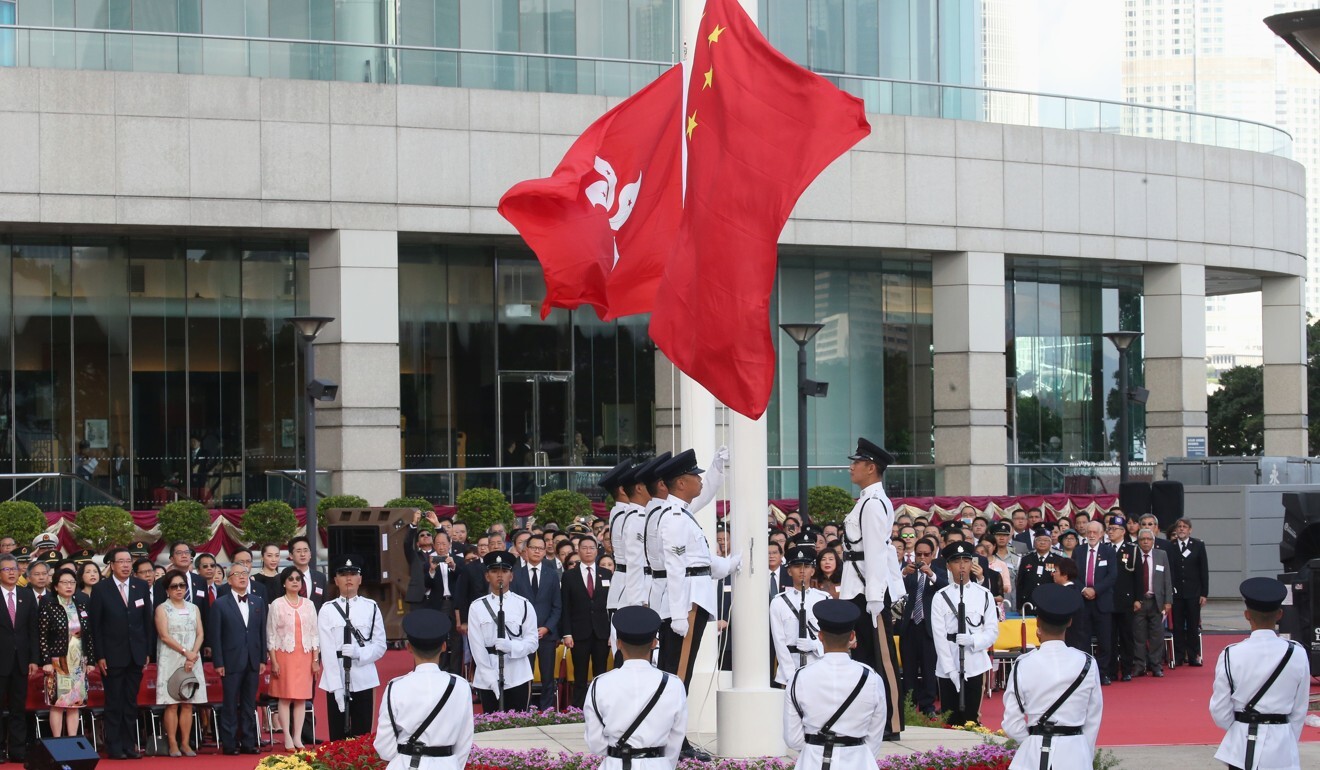
The law lays out nine“appropriate occasions” when the anthem must be played, including when the chief executive, lawmakers and judiciary officers take the oath of office.
Other occasions include flag-raising ceremonies, certain government receptions, major sporting events and the ceremonial opening of the legal year.
The law also contains official musical notation and lyrics, and requires the anthem to be part of primary and secondary-level education.
What triggered the legislation?
Localists, a faction of the opposition camp, believe that the welfare of residents should come before all else and that city should control immigration from mainland China.
According to the Hong Kong Football Association (HKFA), the organisation was fined four times for failing to control the behaviour of fans by Fifa – soccer’s world governing body – and the Asian Football Confederation.
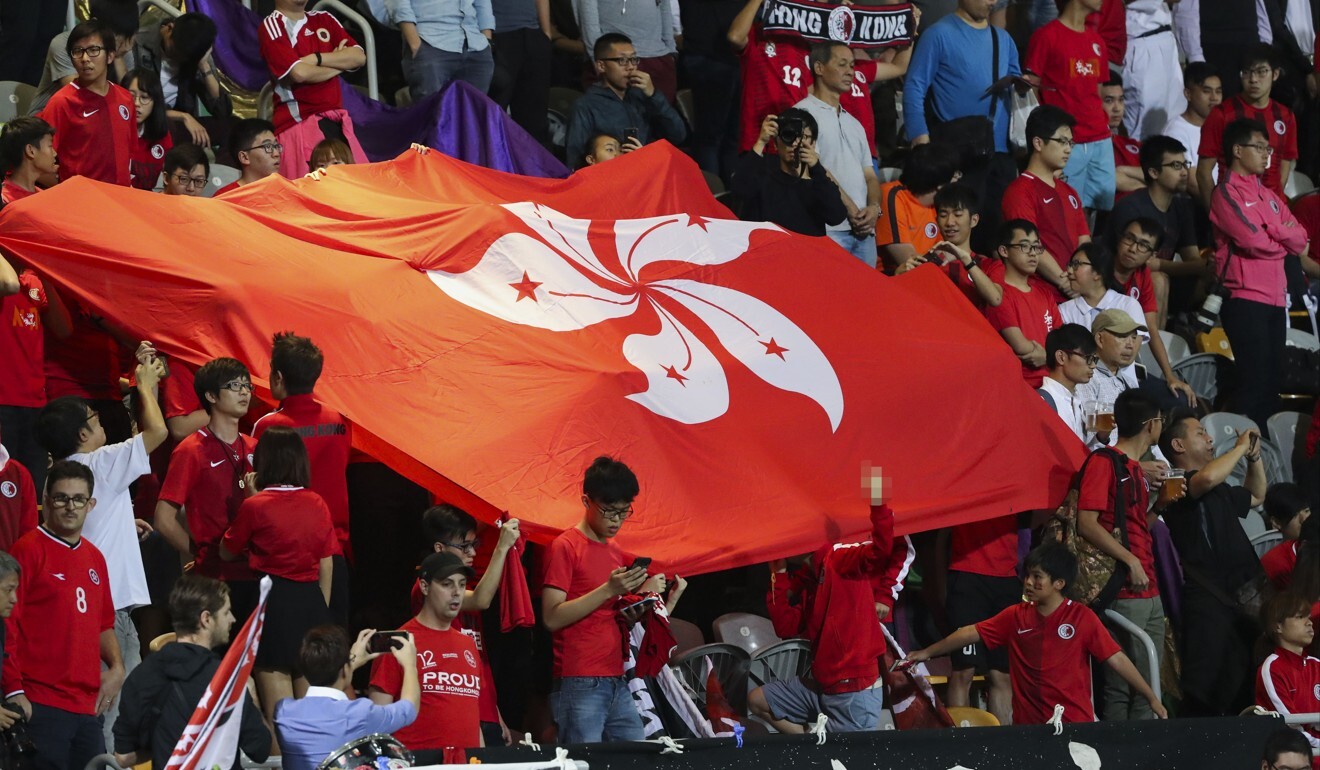
Can a person be fined for singing the song incorrectly or failing to stand when it is played?
The government said the law does not force a person to sing when the anthem is played. While it states the standards and etiquette for playing and singing the anthem, a person will only run afoul of the law by disrespecting the song.
Neither would residents break the law by failing to stand when the song is played during an event that does not fall under the nine specified occasions, for example a horse racing event, or if they are “too focused” on other matters at the time or are physically unable to stand.
The same goes for when the anthem is heard on television or the radio in restaurants, as that would not be an “appropriate occasion” requiring it to be played.
But those who alter the lyrics or score of the anthem or sing it in a distorted or disrespectful way could be prosecuted.
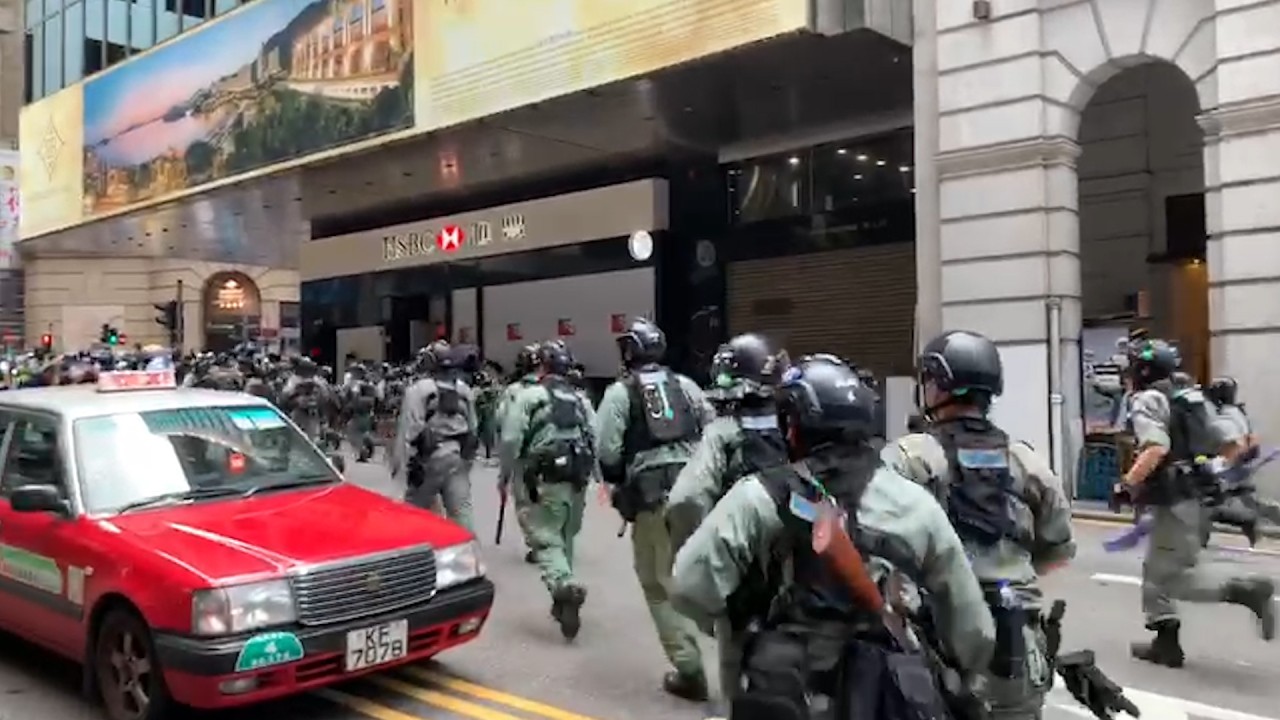
02:16
Protesters gather in Central as Hong Kong lawmakers discuss controversial national anthem law
What about songwriters and composers who want to use part of the anthem in their work?
The law prohibits the use of the anthem in commercial adverts, publishing altered lyrics or scores intended to insult the song, and performances in which the song is played in a distorted or disrespectful way. Violators face a maximum of three years in jail and a HK$50,000 fine.
While the government has laid out a number of scenarios in which a person can be viewed as having broken the law, barrister Anson Wong says the courts have the final word. “In the end, it is up to the court to interpret the law,” Wong said. “So when the government says whether the law is violated in what scenario, it may have historical meaning, but [it is not legally binding].”
How will the law be enforced?
Police can charge a person up to two years after the offence, as opposed to six months for most minor crimes. The government earlier said police might need extra time to investigate cases, given a large number of people might be involved.
The HKFA said police officers could be stationed at soccer games to video crowds to identify people who might be abusing the anthem.
The association questioned whether the new law could completely stop the booing, although it agreed the legislation would “alleviate the situation”.
Association chairman Pui Kwan-kay urged patrons not to bring politics into sports stadiums, saying: “We can’t control fans’ behaviour if they still wish to boo the national anthem.”
What happened in Legco on Thursday?
The bill was passed by 41 pro-government lawmakers. The government plans to gazette the law on June 12, when it will come into effect at the stroke of midnight.
Localist lawmaker Cheng Chung-tai was the sole vote against the law, while other opposition lawmakers abstained in protest.
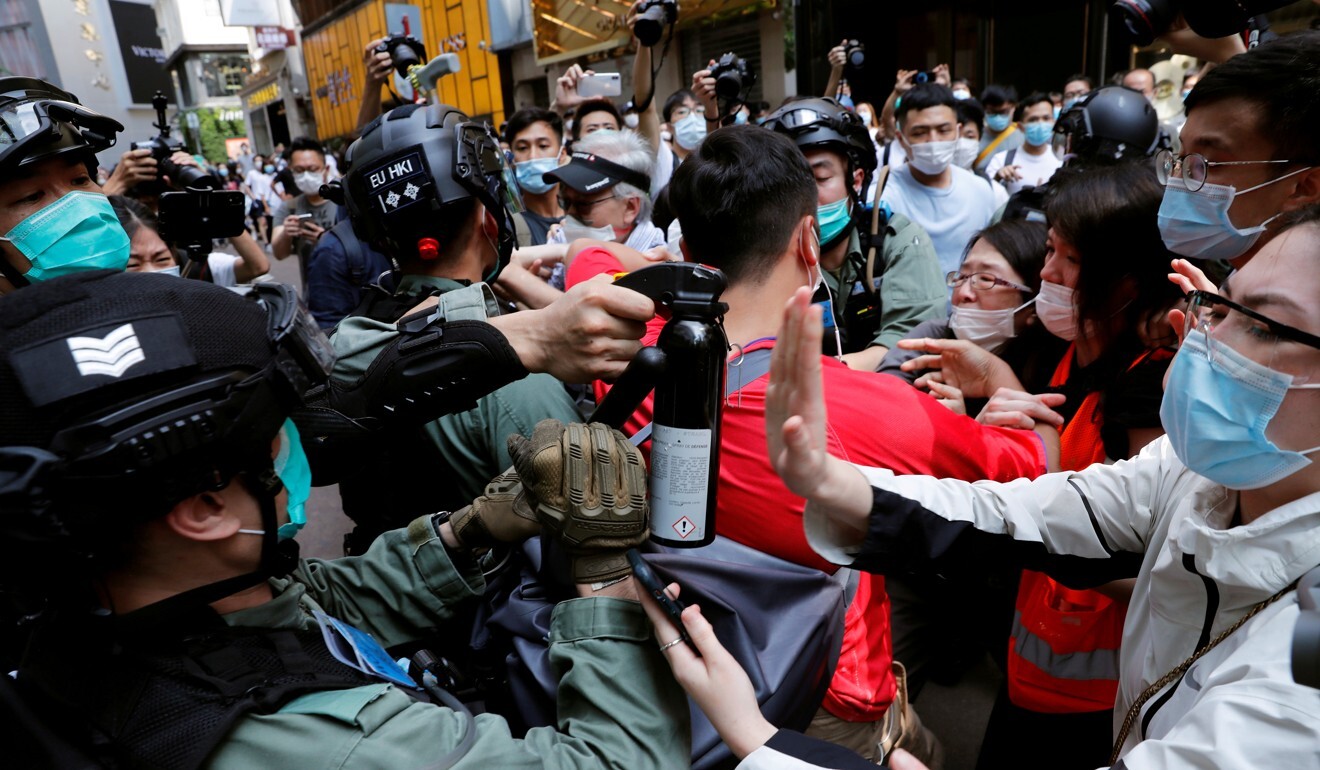
When the bill received its second reading on May 27, opposition legislators tried to derail the bill’s passage. On Thursday, Democratic Party lawmaker Ted Hui Chi-fung and Council Front lawmaker Eddie Chu Hoi-dick dropped bottles of foul-smelling liquid during the meeting but were unable to stop the proceedings.
If the national anthem law can be enacted through Legco, why isn’t Beijing allowing the national security law to go through the same route?
The national security law will be inserted into Annex III and directly promulgated, meaning lawmakers will not be involved in the process. Opposition lawmakers said Beijing had lost faith in the pro-government camp, which was unable to move national security legislation despite having a majority in Legco over the past 23 years.
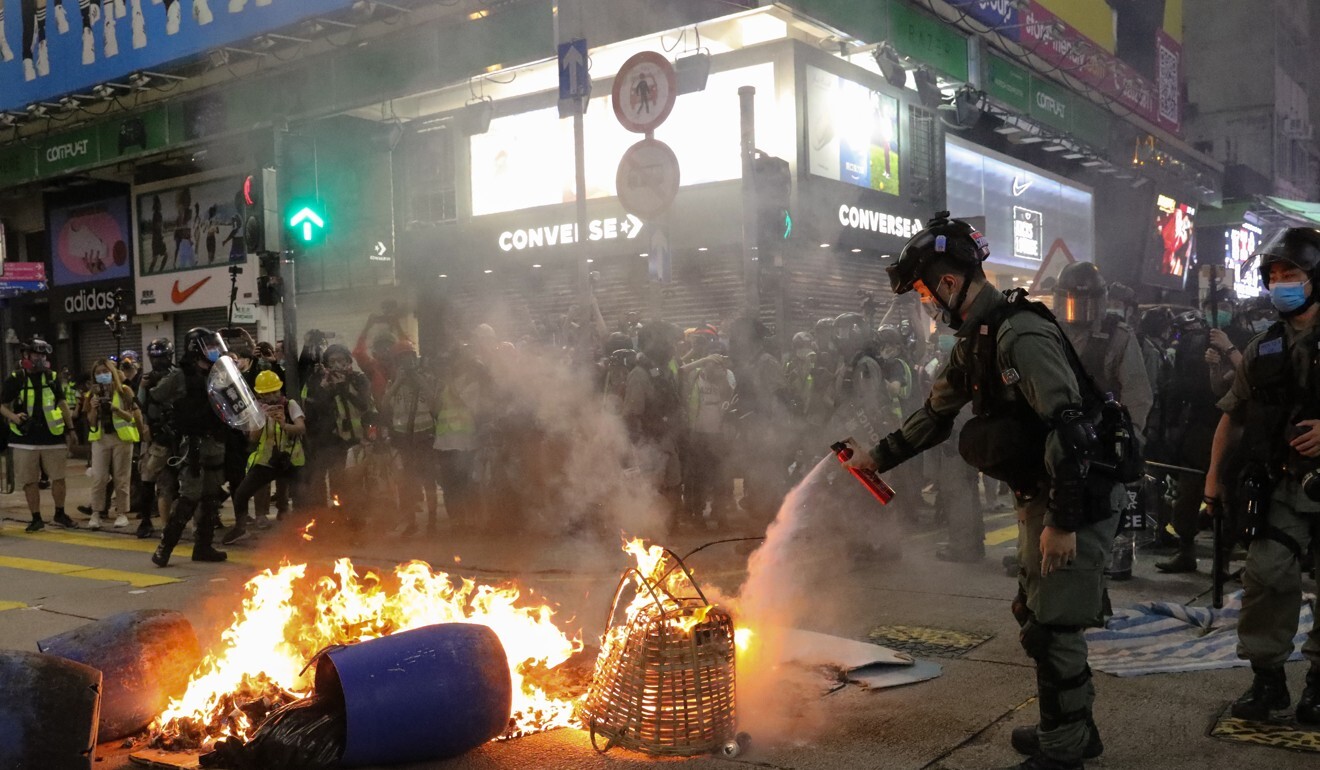
Had the national security law gone through the usual legislative process involving public consultation, they argue it would have been rejected by the public.
Chief Executive Carrie Lam Cheng Yuet-ngor, however, blamed lawmakers for failing to enact the law themselves – which is required under Article 23 of the Basic Law.
Citing political conflicts in Legco, Lam said it was hard to envision the relevant legislation being enacted locally. “I hope people in Hong Kong will first understand why we have now arrived in this situation,” she said.

